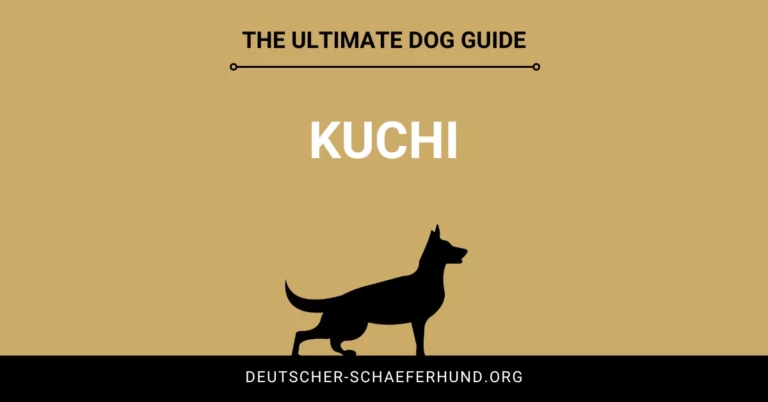Introduction
Meet the Afghan Shepherd, affectionately known as the Kuchi dog. Renowned for their strength and loyalty, these remarkable canines have a rich history that is deeply intertwined with the nomadic Kuchi people of Afghanistan. This guide will delve into the many facets of this extraordinary breed, offering insights into its history, characteristics, health, and the kind of care it needs.
| Attribute | Information |
|---|---|
| Origins | Afghanistan, associated with the Kuchi tribe |
| Other Names | Afghan Shepherd |
| Height | Approximately up to 32 inches |
| Weight | Can weigh up to 90 pounds |
| Temperament | Loyal, protective, and somewhat independent |
| Lifespan | 12-14 years |
| Diet | Balanced diet suited for large, active dogs |
| Exercise Needs | High – they require regular vigorous exercise |
| Grooming | Regular brushing to maintain a healthy coat |
| Common Roles | Flock guardians, companions |
| Compatibility | Can be great with families, needs socialization with other pets |
History and Origin of the Kuchi Dog
Deep Roots in Afghanistan
The Afghan Shepherd traces its roots back to the indigenous Kuchi tribe of Afghanistan. They have been inseparable companions of these nomadic people for centuries, serving as diligent protectors of the tribe’s livestock and dependable companions during their frequent migrations.
Physical Characteristics of the Kuchi Dog
A Majestic Canine
The Afghan Shepherd stands tall and proud, exuding a sense of power and endurance. They typically reach a height of about 32 inches and can weigh up to 90 pounds. Their thick, dense coat, which comes in a variety of colors, helps them withstand the harsh Afghan winters.
Temperament and Behavior of the Kuchi Dog
Guardian and Companion
Afghan Shepherds are known for their loyal and protective nature. These dogs form strong bonds with their families, often showing a quiet, stoic demeanor. Their long history as guardian dogs means they can be wary of strangers, but they are usually docile and calm around their human families.
Health and Lifespan of the Kuchi Dog
Strong and Hardy
Bred to survive in tough conditions, Afghan Shepherds are generally healthy and robust dogs. They boast a lifespan of 12-14 years. Like all breeds, they have certain breed-specific health conditions, so regular veterinary check-ups are crucial.
Caring for a Kuchi Dog
Meeting Their Needs
Due to their size and active nature, Kuchi dogs need a balanced diet and plenty of exercise. Regular grooming is necessary to keep their coat in top condition. Regular veterinary visits are also essential to ensure they remain healthy.
Training a Kuchi Dog
Guiding Your Afghan Shepherd
Training an Afghan Shepherd requires patience and consistency. Due to their independent nature, they can sometimes be stubborn, but with positive reinforcement techniques, they can be taught to follow commands effectively.
Living with a Kuchi Dog
A Life With the Afghan Shepherd
Kuchi dogs are not suited to apartment living due to their size and energy levels. They thrive in homes with large outdoor spaces. They get along well with family members and, with proper socialization, can coexist peacefully with other pets.
Adopting a Kuchi Dog
Welcoming an Afghan Shepherd
Adopting a Kuchi dog is a long-term commitment that should be carefully considered. Ensure you can provide for their physical and emotional needs before you decide to bring one into your home. Remember, these dogs thrive on companionship and activity, so a home where they can be an integral part of the family is ideal.
Exercise Needs of the Kuchi Dog
Active and Energetic
Due to their history as working dogs, Kuchi dogs are energetic and need ample exercise. They thrive with vigorous daily exercise routines such as long walks, runs, and playtime in a securely fenced yard. Their active nature makes them great companions for outdoor enthusiasts.
The Kuchi Dog and Children
A Gentle Giant
With proper socialization and training, Kuchi dogs can be great with children. Their protective nature often extends to the younger members of the family. However, due to their size, supervision is recommended during interactions with very young children.
The Kuchi Dog as a Working Dog
More Than a Pet
The Kuchi dog has a long history as a working dog, predominantly used for guarding livestock against predators. Even today, many Afghan Shepherds are employed in their native country as flock guardians. Their intelligence, loyalty, and keen instincts make them well-suited for this role.
Costs Associated with Owning a Kuchi Dog
Financial Considerations
Owning any pet is a financial commitment. Prospective owners should factor in costs for quality food, grooming supplies, regular vet check-ups, vaccinations, and potential health issues. Larger breeds like the Kuchi dog may have higher costs associated with food and healthcare.
Traveling with a Kuchi Dog
On the Move
Kuchi dogs can adapt well to travel due to their nomadic origins. However, due to their size, traveling with a Kuchi dog may present unique challenges. Owners should consider the dog’s needs and comfort while planning any journey, be it a short trip or a long haul.
The Kuchi Dog’s Relationship with Other Dogs
Canine Interactions
With proper socialization, Kuchi dogs can generally get along well with other dogs. However, due to their protective nature and history as flock guardians, some Kuchi dogs may exhibit dominance or territorial behaviors, which can be managed with training and socialization.
Breeding Kuchi Dogs
Passing on the Line
Breeding Kuchi dogs requires knowledge about the breed and a commitment to maintaining its health and characteristics. It’s essential to perform health checks and understand the breed’s needs during pregnancy and whelping.
Legal Considerations for Owning a Kuchi Dog
Understanding Regulations
Potential owners should be aware of any breed-specific legislation or housing restrictions in their area. It’s also vital to ensure all necessary vaccinations and local registrations are in order.
The Kuchi Dog’s Coat and Grooming Needs
Maintaining a Healthy Coat
The Kuchi dog has a thick, dense coat that not only gives it a majestic look but also protects it from harsh weather conditions. Regular brushing is required to keep their coat healthy and free from mats. They are not heavy shedders, but during the shedding season, more frequent grooming may be needed.
The Kuchi Dog in Popular Culture
Canine Star
While not as well-known as some breeds in the Western world, the Kuchi dog’s unique characteristics and history have earned it a distinct place in Afghan culture. They are often featured in local folklore and stories, testifying to their enduring bond with the Afghan people.
Rescue and Adoption of Kuchi Dogs
Choosing Adoption
Though Kuchi dogs are not as common in rescue centers as other breeds, there are organizations dedicated to rescuing and rehoming them. Choosing to adopt a rescue dog can be a rewarding experience, giving a dog in need a second chance at a happy life.
Ensuring Ethical Breeding Practices
Preserving the Breed’s Integrity
As with any breed, potential owners should do their research to ensure they are supporting ethical breeding practices. This includes checking for health clearances, understanding the breed standard, and ensuring puppies are raised in a healthy, nurturing environment.
Conclusion
The Afghan Shepherd, or Kuchi dog, is a unique breed that offers a wonderful blend of loyalty, strength, and endurance. While they have specific needs in terms of space, diet, and exercise, they can bring joy and companionship to any household that can accommodate their lifestyle. It’s essential to remember that, like any dog, a Kuchi requires love, care, and a commitment to their wellbeing. By understanding their history, characteristics, and needs, you can build a strong, loving bond with these incredible dogs. Embracing the journey with an Afghan Shepherd can indeed be a rewarding experience filled with countless moments of joy.



